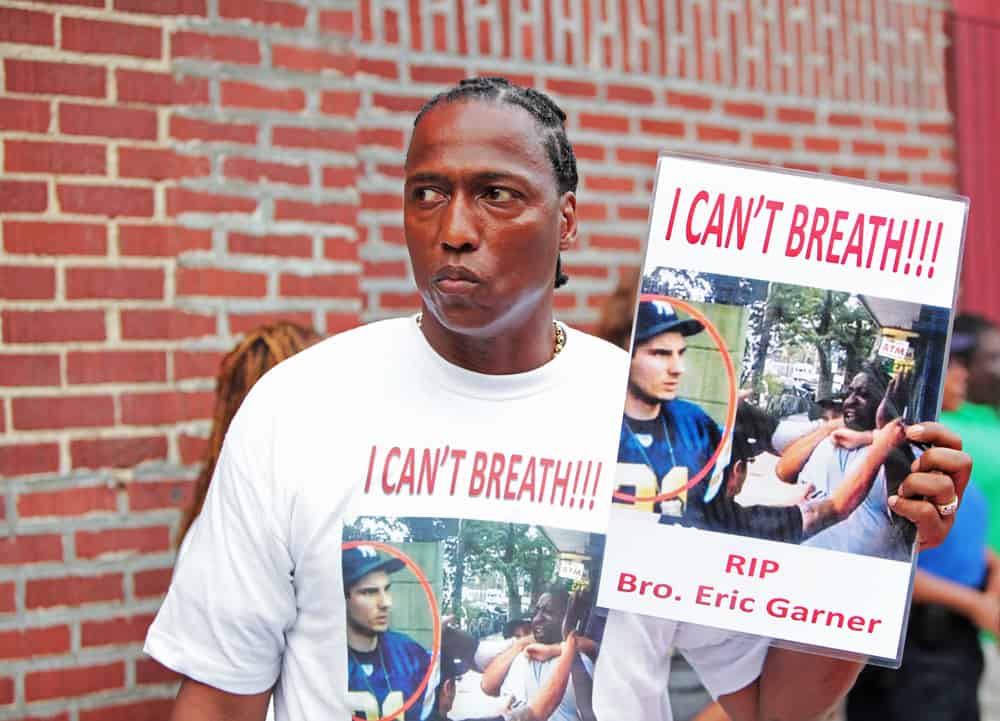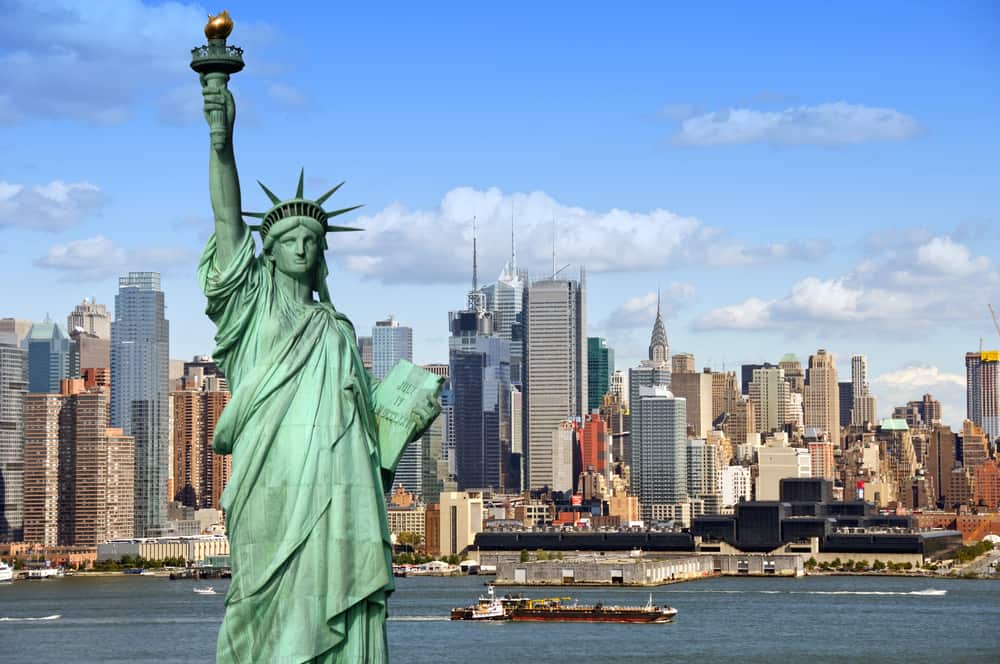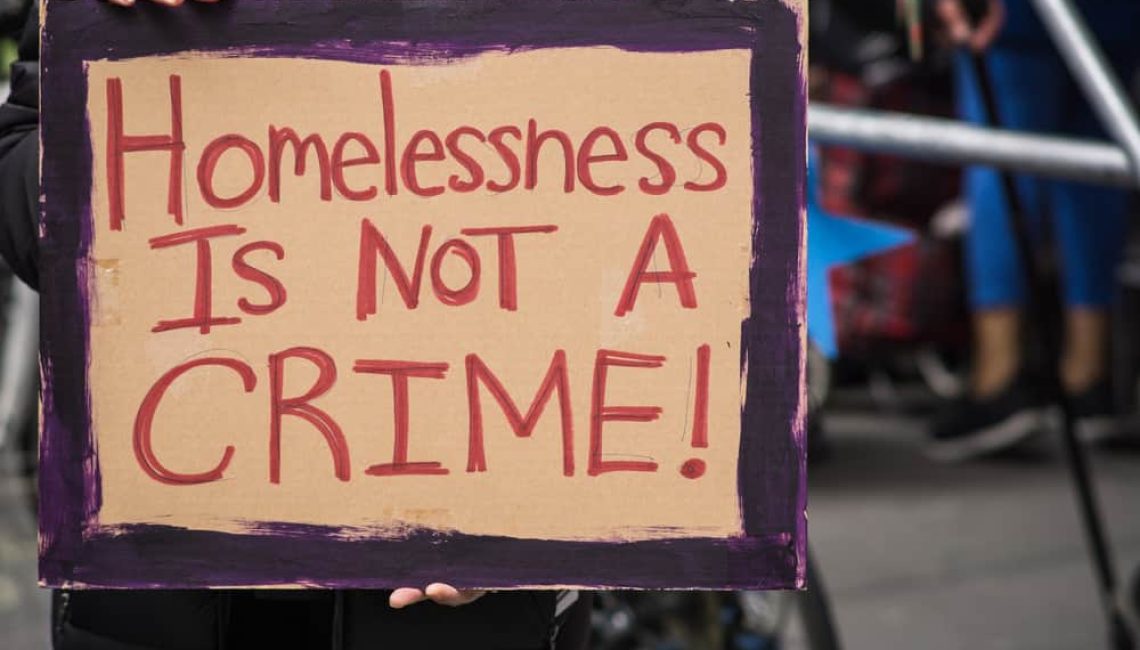Jordan Neely, a homeless young Black man apparently suffering from mental illness, was put in a chokehold and killed by Daniel Penny, a white 24-year-old ex-marine. So, what do you know, we have yet another Black man with the life choked out of him, only this time by an ex-marine rather than the police, just for a little variety. Ever since the killings of Eric Garner and George Floyd, choking the life out of a Black man has threatened to surpass the old tried-and-true American traditions of shooting them or lynching them. (Get the feeling this humble spirit is in no mood to mince words?)
Multiple witnesses said that Penny held Neely down for several minutes after he stopped moving, but none tried to intervene. (Are they culpable for Neely’s death like the officers who just stood by as Derek Chauvin held his knee on George Floyd’s neck for over nine minutes?) Penny, who did not attempt to flee the scene and maintains that he did nothing wrong, is facing second degree manslaughter charges, although Neely’s family is pressing for a first-degree murder charge. (Not surprisingly, Governor Ron DeSantis and others on the right have come to Penny’s defense, while his defense fund has already pocketed over $1 million.) Neely had previously been arrested more than three dozen times, including four cases of punching people, but Penny had no way of knowing this when he caused his death.

We’ve had far too many incidents of (white) vigilantism lately, but given there’s no evidence Neely committed any crime except to shout about his dire circumstances, it’s questionable whether Penny’s actions truly constitute vigilantism. (If every time someone was loud and obnoxious on a subway train another passenger took it upon themselves to kill them then and there, we would have more fatalities from subway attacks than we do from mass shootings!) Even if Penny truly perceived a threat to his own safety, there is no justification for his killing Neely. Not unlike a trained police officer, Penny, as an ex-marine, should have known the potential consequences of his actions.
There is no evidence that Neely assaulted anyone on the subway, but apparently he was acting aggressively toward other passengers, yelling: “I don’t have food. I don’t have a drink. I’m fed up. . . I don’t mind going to jail and getting life in prison. I’m ready to die.”
There’s hardly a social issue this case doesn’t touch upon, most notably mental illness and homelessness. Our country’s failure to deal with what seems an epidemic of mental illness has become yet another national disgrace on our growing list. Many on the right maintain it is the root cause of our concurrent epidemic of gun violence (it isn’t!), while many on the left believe it is at least partially responsible for the circumstances that led to Neely’s death (homelessness, despair, erratic behavior). Homelessness has also become a terrible problem, especially in our big cities, such as New York, Los Angeles, and San Francisco, based on a variety of factors, including a lack of affordable housing, an inadequate safety net, drug addiction, and yes, mental illness. It should be noted that, at the time of the incident, Neely was on the city’s list of the 50 homeless people most in need of urgent assistance.

Our Country is Self-Destructing Because of Our Growing Wealth Divide!
New York’s residents are divided over Neely’s death, pitting the city’s haves against its have nots. The haves, who feel they are under constant assault from people like Neely—that is, representatives of the problems our society has not found a way to address—sympathize with Penny’s actions. The have-nots, on the other hand, many of whom feel excluded by the incredibly prosperous society that surrounds them, relate to Neely’s plight and believe he should receive justice. (Prior to Penny being charged, protests broke out in the city.) These people don’t feel seen or heard, and when they can no longer contain their anger and frustration they are at risk of being held down and choked by the powers that be, in this case an ex-marine.
New York City offers a perfect microcosm of the inequality that’s destroying our country. But as often as I myself have used the term, “inequality,” the definition of which is “the condition of being unequal; lack of equality; disparity,” I’m tired of referring to the stark social and economic divide in our nation as simply inequality—it is increasingly a monumental, unbreachable chasm. In New York, as in our country as a whole, we have one group that is prospering in a knowledge-based, globalized economy, while another finds it increasingly difficult to survive, let alone prosper. Until we find a way to offer the latter hope and opportunity, problems such as homelessness and mental illness, and the violence they ultimately spur, will only get worse.
